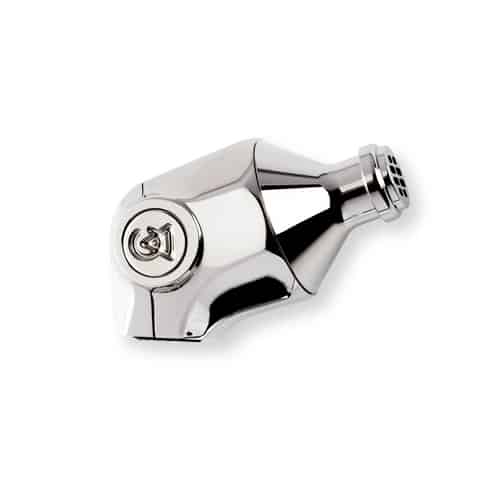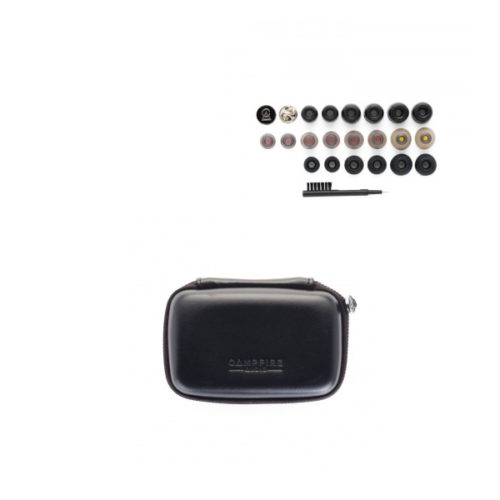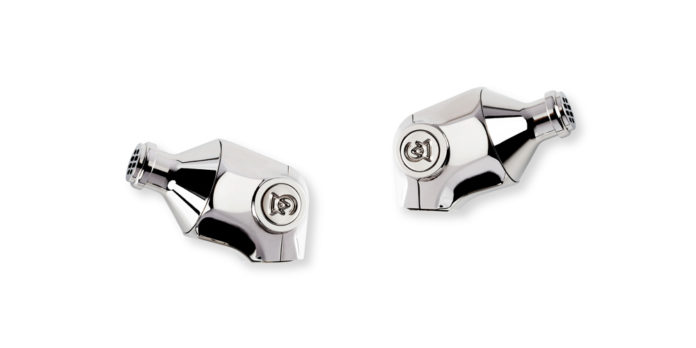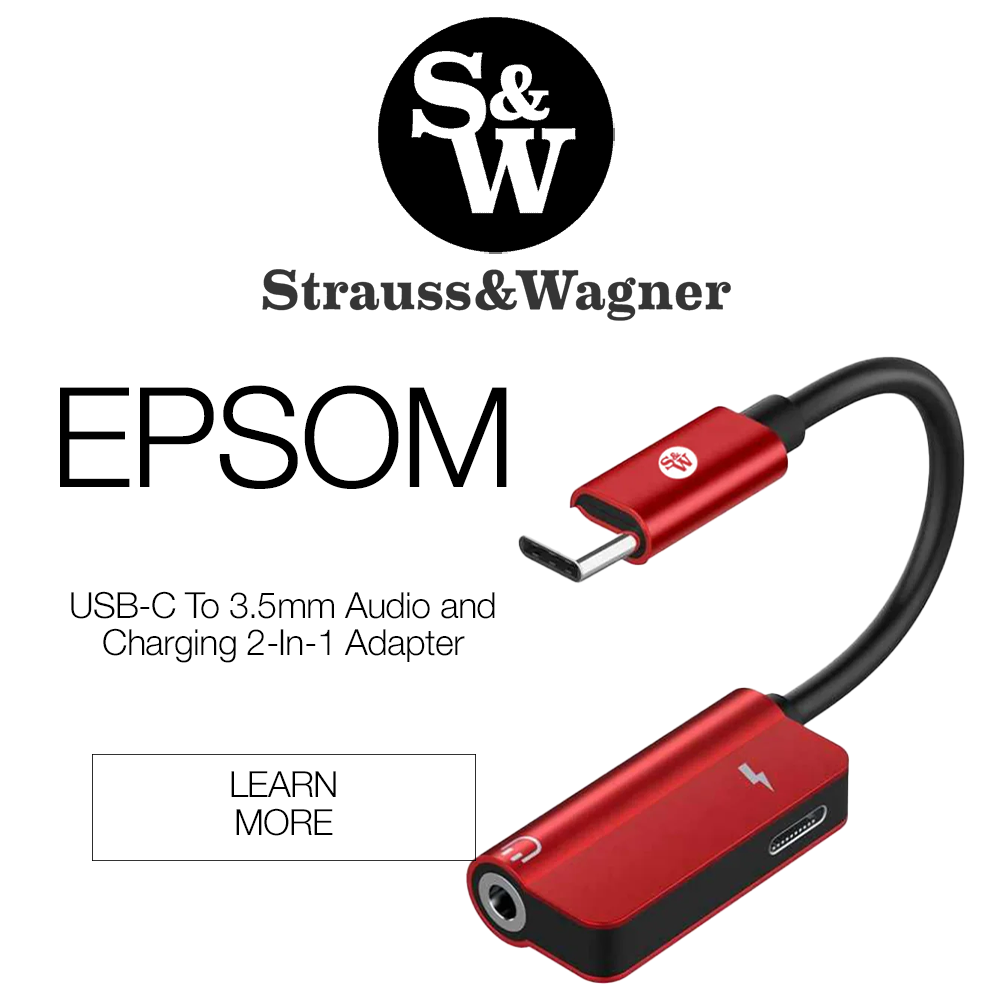New from Campfire Audio, the much-anticipated Atlas finally graces my review desk. At $1299, this ain’t no Campfire Comet, but how does it fit in with other offerings from the manufacturer?
Campfire Audio Atlas Review

The Atlas comes in your standard Campfire Audio box. There’s a leather carrying case with a zipper opening. There’s also ten pairs of eartips, a cleaning tool, and a snazzy pin for those fashion-minded audio junkies out there.
Design wise, the Atlas takes a few cues from the Comet, including its outward appearance. This new form allows the earphone to be worn two different ways – with the cable hanging straight down, or with the cable wrapped over the top and running down the back of the ear.
The ear pieces themselves feature the same stainless steel fascia as the Comet, but do sport a little bit more bulk from accommodating a larger driver.
This larger driver measures as one of the premier design features of the Atlas, promising greater (but still natural) bass impact.

Specifications
Frequency Range: 5-20,000 Hz
Nominal Impedance: 19 ohms
Sound Pressure Level (SPL): 105 dB
The technical details surround the Atlas reveal a fairly standard frequency range, but with an intense low end. That low 19-ohm impedance will easily compliment low-power devices like phones and computers, or high-resolution personal audio players. Sound pressure is rated at 105 decibels, so if you can’t get decent volume with these earphones, you should probably consult your doctor.
Low End
Slightly relaxed in terms of overall detail, the lows on the Atlas sound natural, but still offer deep resonance. Stronger than I was expecting, the bass isn’t overblown or as intense as some earphones at this price point (like those from Jerrry Harvey). Still, it’s got impact and oomph to lend gravity to any track you throw at it.
Midrange
The midrange sounds great, marked by excellent fidelity. Very accurate where vocals or instrumentation are concerned, I’m in love with these mids. Pair them with an artist whose vocals you love and you’ll revel in the sheer level of detail on display here. Kim Carnes’ naturally husky voice seems huskier, Tom Delogne’s high pitched whine seems whinier, and Billy Corgan’s nasally drawl reaches nasally critical-mass.
High End
A tad bit bright, the Atlas gives delivers good detail without growing harsh or piercing. The overall sound here is still more smooth than anything else. With perhaps just a little less resolution than I had originally hoped for, this high end is growing on me – especially for tricky tracks with artifacts or of sub-par recording quality. For me personally, I find it waaaay more forgiving for some choice tracks from Big Joe Turner or Charlie Parker, as well as for K-Pop junk I bought on iTunes.
Soundstage
Good strong depth and crystal clear placement give the Atlas an illuminated soundstage. This phenomenal sense of realism will seep into your ears and grab your brain. From there, it’s all over, as you get pulled into a vortex of sound from your favorite tracks. Headroom this sweet doesn’t come along every day, and it’s definitely on par with my other favorite “headroom earphones,” the U18t and the U12t.
Other Observations
The high end really is a great choice for older recordings or low-quality digital recordings. While detailed, it’s still forgiving – which you usually don’t see (or hear) in headphones at this price point.
Fit is another strong point with the Atlas; when I first put these earphones on, I jammed them forcibly in my ears. Of course, this hurt like Hell, and the sound quality sucked to. Pulling them out, I tried a second time by resting them just inside my ears – not forcing them or worrying about a perfect seal, but just trying to find a comfortable fit.
When worn like this, the sound is phenomenal, and the soundstage seems just a bit more extended, as well. I was worried at first that such a slight fit would prove sloppy, with the earphones falling out at every opportunity. However, thanks to the Atlas’ weight, the earphones still stay put, while delivering a better sense of space, too.
And the low end – let’s talk about that. Heady in its depth and reach, the low end offers an emotive listening experience. While not quite as refined or downplayed as the low end on the Andromeda, it sounds slightly warm and hits your right in your feelings.
Recommendations
If you’re in the market for a more balanced, more even-keeled sound, skip the Campfire Atlas and opt for the Campfire Andromeda at $1099 instead. Sure it’s cheaper and doesn’t have that just-released-earphone hype, but it’s also just a bit more accessible.
For those seeking massive quantities of bass, on the other hand, the perfect earphone might actually be something from Jerry Harvey, like their Roxanne or 16V2 Pro models (at $1599 and $1299, respectively).
For those seeking the best of both worlds, though – robust mids and forgiving highs, but with tons of toe-tapping, head-banging, heart-thumping, pelvis-grinding bass, you couldn’t ask for a sweeter deal. The fact that the Atlas costs what it does – a fair $1299 – just makes that deal even sweeter.
Final Analysis
At $1299, this Campfire Atlas is white-hot. With a strong low end, steady mids, and forgiving highs, as well as decent headroom, the sound here is well worth the price – and still manages to give more expensive earphones a run for their money.
Rest assured, if you are after a warm sound that handles older recordings with ease, there is no better option.
Buy it for the best price here:
MAJORHIFI may get a commission from retail offers.
MAJORHIFI may receive commissions from retail offers.








